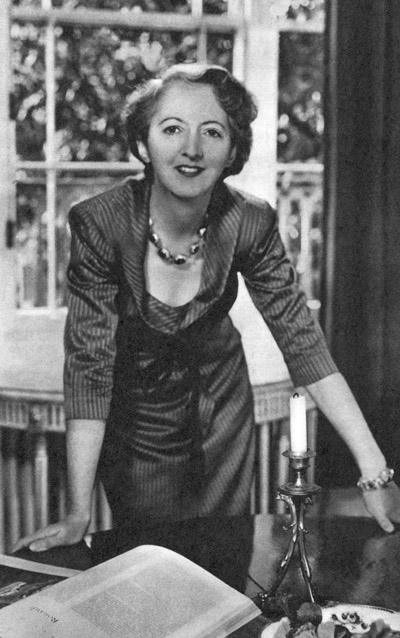The subtitle of Deirdre David’s life of Olivia Manning, ‘A Woman at War’, has a resonant double meaning. She was, as we are repeatedly informed, a unique example of a woman novelist who wrote as well about war and battles as a man. But she was also at war with herself, with her colleagues, and, most enduringly and curiously, with her husband, the legendary R. D. Smith, known to all as ‘Reggie’.
Manning is rightly best remembered for her largely autobiographical novels describing the second world war, The Balkan Trilogy and The Levant Trilogy, which gained an afterlife in a memorable 1987 BBC television series. These volumes cover Manning’s marriage in England in 1939, her journey to Romania where her husband was a young British Council lecturer, and their subsequent war-driven refugee wanderings to Greece, Cairo and Palestine. The narrative itself is historic, an eyewitness view of major events in the Middle East, but it is also a gripping account of one of the oddest and most unlikely marriages ever to survive for 40 years.
The novelist Olivia Manning and her husband Reggie are so intimately connected with their counterparts, Harriet and Guy Pringle, that it is hard even for those who knew the originals well to distinguish fact from fiction. Deirdre David explores this camouflaged terrain with scrupulous scholarship, aided by extensive deposits of papers in Austin, Texas, and by testimony from surviving friends. Some of these, like the late Francis King, who died shortly after she interviewed him, were famed as raconteurs, and David (who is an American academic) must have found it hard to judge the tone of the more colourful reminiscences to which she was treated.
Nor was the printed word always to be trusted. Two of Manning’s closest friends, the poet Stevie Smith and the novelist Kay Dick, were both dead before David embarked on her biographical labour, and the records they left are full of inconsistencies. Dick (1915-2001), famed as ‘the centre of literary intrigue and gossip’, was a notoriously unreliable witness, all of whose relationships were explosive. Those interested in this period and its extravagant characters, particularly those in the gay and lesbian literary world, owe David a debt for the thoroughness with which she studied those thousands of archived letters, receipts and complaints.
She is an engagingly partisan biographer and (unlike me) an admirer of all her subject’s work, which she analyses in occasionally excessive detail. She is ready to spring to Manning’s defence even while exposing her manifest human failings, the most glaring of which was her envy of the success of others. Her violent resentment of Muriel Spark, Iris Murdoch and Edna O’Brien was incautiously outspoken, and she didn’t like some men much either: Lawrence Durrell in retaliation referred to her as ‘that hook-nosed condor of the Middle East’. Manning on the Booker prize and the prejudiced malevolence of male reviewers are topics familiar to those who knew and despite all loved her.
David explores with sympathy Manning’s insecurities about her Portsmouth background, her unloving mother, her lack of formal education, her unorthodox looks (that nose), her recurrent ill health, her concealment of her birth date, her fear of ageing and death, while giving full weight to her hospitality, her loyalties, her moments of unexpected generosity.
But the most intriguing feature of this gifted and difficult woman’s life remains the profound mystery of her marriage. Reggie/Guy is given to saying to his embattled wife ‘O come between her and her fighting soul’, a phrase which beautifully suggests the spirit of both of them. He was a comfortable, gregarious, beer-drinking, short-sighted, poetry-loving, promiscuously affectionate Communist (he left the party over Hungary in 1956), whereas she was prickly, censorious, acutely observant, and at times racist, and she voted Tory all her life until disappointed by Edward Heath. He was a spendthrift who spent his BBC salary on friends and strangers in the pub, whereas she invested shrewdly, on the advice, we are here told, of her lover Jerry Slattery. (It’s a pity, in view of the events of the past few years, that David doesn’t tell us precisely what Reggie’s ‘small’ BBC pension was worth.)
They had no children (Manning had endured a traumatic ‘missed abortion’ during the war) and they went their own ways, but they looked after one another. Theirs was a lasting interdependence, forged during those dangerous war years, and it transcended infidelities and incompatibilities. Guy’s big bear hug could warm Harriet’s cold and doubting heart, and thaw her ‘little monkey’s paws’. It was through him that Manning was enabled to create those historic masterpieces, with their memorable characters and their even more superb landscapes. It was an astonishing emotional and imaginative collaboration. No wonder he was so proud of her.





Comments